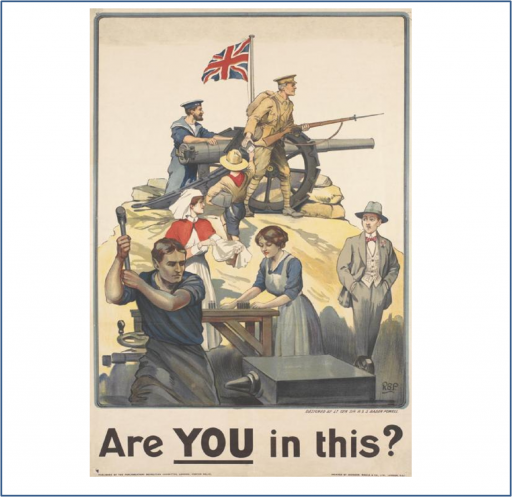The Science Museum in London will host a public lecture entitled ‘Patriotism and Profit during World War One’, delivered Graeme Gooday and Elizabeth Bruton, University of Leeds.
The lecture will be held on Saturday 2nd November 2013.
Patriotism or profit?
This lecture will explore the different motivations of individuals, the military, industry, and commerce in relation to telecommunication innovations during the First World War – were they motivated by patriotism, profit, or both?
Pre-war commercial developments and innovation in telecommunications proved central to wartime developments.
The lecture will consider what motivated commercial companies to meet wartime demands in the field of telecommunications.
The lecturers will explore the roles of individuals, members’ institutions, state bodies, the military, and commercial bodies in the development of telecommunications during World War One, based on research from the British Telecom archives and the Institute of Engineering and Technology archives.
The lecturers aim to “also draw out a strong degree of tension between military demands, civilian innovations, and commercial profit”.
“We will uncover voices left out from the traditional narrative of wartime patriotism and explore how wartime activities influenced post-war developments, successes, and technologies”.
Further information
The lecture is free to attend, and tickets can be reserved here.
Light refreshments will be provided before and after the lecture. The lecture will be followed by a discussion which will last about an hour in total.
The lecture will be held in the Fellows’ Room at the Science Museum, London.
The Fellows’ Room can be accessed via the Director’s Entrance which is separate to the main Science Museum entrance and is located at the Imperial College end of the Science Museum building. The entrance will be clearly marked.
The lecture is being supported by the Innovating in Combat: telecommunications and intellectual property in the First World War project by the University of Leeds and Museum of the History of Science, Oxford. This is funded by the Arts and Humanities Research Council.
Source: Innovating in Combat website
Posted by: Daniel Barry, Centenary News
